Toyota Corolla (E210) 2019-2026 Owners Manual / Vehicle specifications / Specifications / Maintenance data (fuel, oil level,
etc.)
Toyota Corolla (E210): Maintenance data (fuel, oil level, etc.)
Dimensions and weight
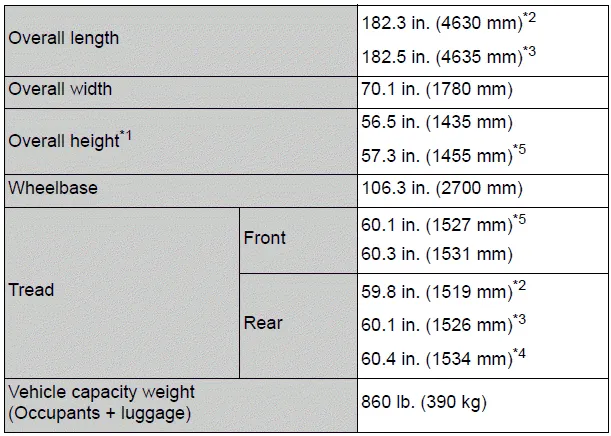
*1:Unladen vehicles
*2:Vehicles without 18-inch tires
*3:Vehicles with 18-inch tires for Guam and Saipan
*4:Vehicles with 18-inch tires except for Guam and Saipan
*5:For Guam and Saipan
Seating capacity

Vehicle identification
■ Vehicle identification number
The vehicle identification number (VIN) is the legal identifier for your vehicle. This is the primary identification number for your Toyota. It is used in registering the ownership of your vehicle.
On some models: This number is stamped under the right-hand front seat.
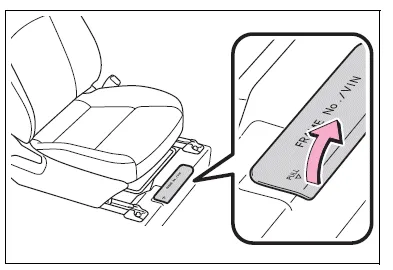
This number is also stamped on the top left of the instrument panel.

This number is also on the Certification Label.
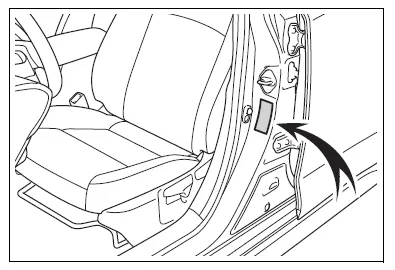
■ Engine number
The engine number is stamped on the engine block as shown.
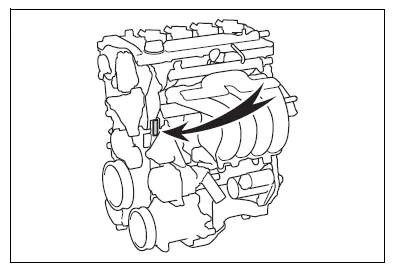
Engine
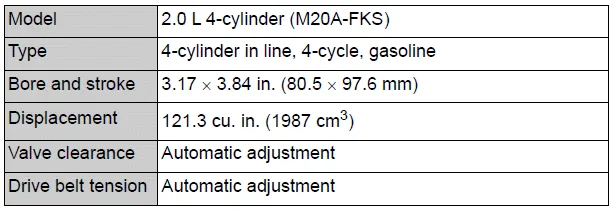
Fuel


Lubrication system
■ Oil capacity (Drain and refill [Reference*] )
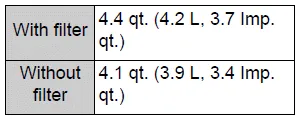
*: The engine oil capacity is a reference quantity to be used when changing the engine oil. When actually adding the engine oil, make sure that the oil level is between the low level mark and refill upper limit mark.
Warm up and turn off the engine, wait about 5 minutes, and check the oil level on the dipstick.
■ Engine oil selection
"Toyota Genuine Motor Oil" is used in your Toyota vehicle. Use Toyota approved "Toyota Genuine Motor Oil" or equivalent to satisfy the following grade and viscosity.
Oil grade: JASO GLV-1
Recommended viscosity: SAE 0W-8
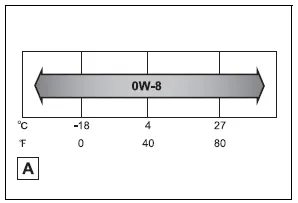
- Outside temperature
SAE 0W-8 is the best choice for good fuel economy and good starting in cold weather.
If SAE 0W-8 is not available, SAE 0W-16 oil may be used However, it must be replaced with SAE 0W-8 at the next oil change.
Oil viscosity (0W-8 is explained here as an example):
- The 0W in 0W-8 indicates the characteristic of the oil which allows cold startability. Oils with a lower value before the W allow for easier starting of the engine in cold weather.
- The 8 in 0W-8 indicates the
viscosity characteristic of the
oil when the oil is at high temperature.
An oil with a higher viscosity (one with a higher value) may be better suited if the vehicle is operated at high speeds, or under extreme load conditions.
How to read oil container label: The Japanese Automotive Standards Organization (JASO) GLV-1 mark is added to some oil containers to help you select the oil you should use.
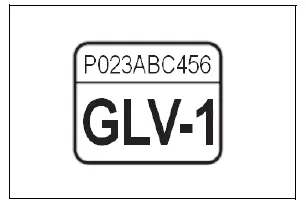
Cooling system
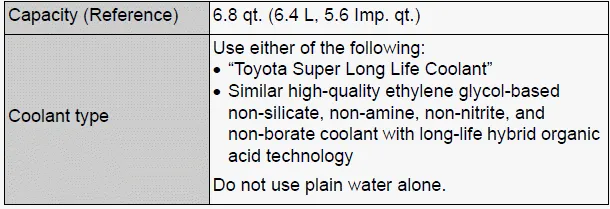
Ignition system (spark plug)

NOTICE
■Iridium-tipped spark plugs
Use only iridium-tipped spark plugs. Do not adjust the spark plug gap.
Electrical system (battery)

Continuously variable transmission

*: The fluid capacity is a reference quantity.
If replacement is necessary, contact your Toyota dealer.
NOTICE
■Continuously variable transmission fluid type
Using continuously variable transmission fluid other than the above type may cause abnormal noise or vibration, or damage the continuously variable transmission of your vehicle.
Brakes
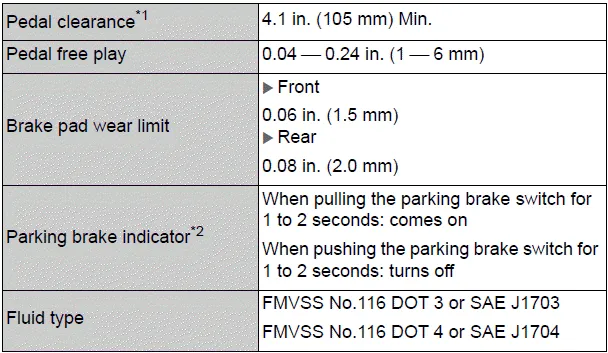
*1:Minimum pedal clearance when depressed with a force of 67.4 lbf (300 N, 30.6 kgf) while the engine is running.
*2:Make sure to confirm that the brake system warning light (yellow) does not illuminate.
Steering

Tires and wheels
Type A
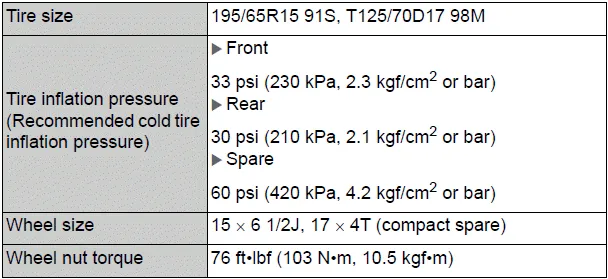
Type B
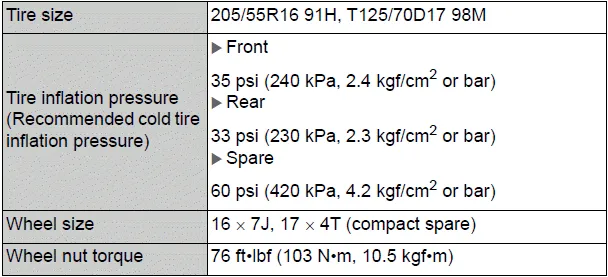
Type C
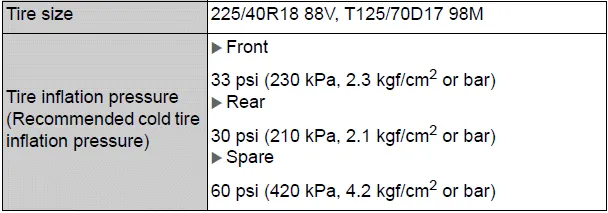

Type D
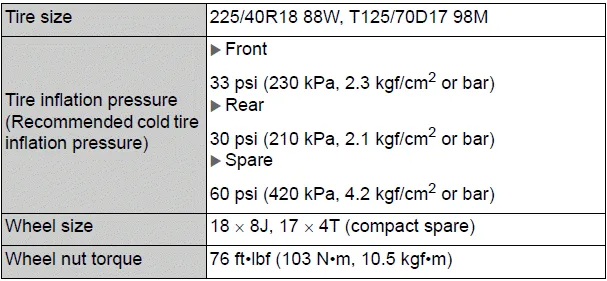
Light bulbs
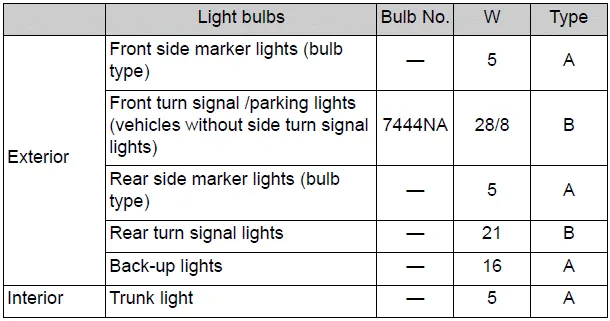
A: Wedge base bulbs (clear) B: Wedge base bulbs (amber)
Other materials:
Uniform Tire Quality
Grading
This information has been prepared
in accordance with regulations
issued by the National
Highway Traffic Safety Administration
of the U.S. Department of
Transportation.
It provides the purchasers
and/or prospective purchasers
of Toyota vehicles with information
on uniform tire quality grading.
You ...
Circuit description
Refer to dtc p0115
Dtc no.
Dtc detection condition
Trouble area
P0125
If the engine coolant temperature (ect) was less than –6.6 °C
(20 °F) when starting the engine, and 20 minutes after the engine
start, the ect sensor still indicates below 20 °C (68 ...
Air conditioning controls
■ Adjusting the temperature setting
To adjust the temperature setting, turn
clockwise to increase the temperature
and turn counterclockwise to decrease
the temperature.
■ Fan speed setting
Press “>” on to increase the fan
speed.
Press “<” on to decrease the ...


